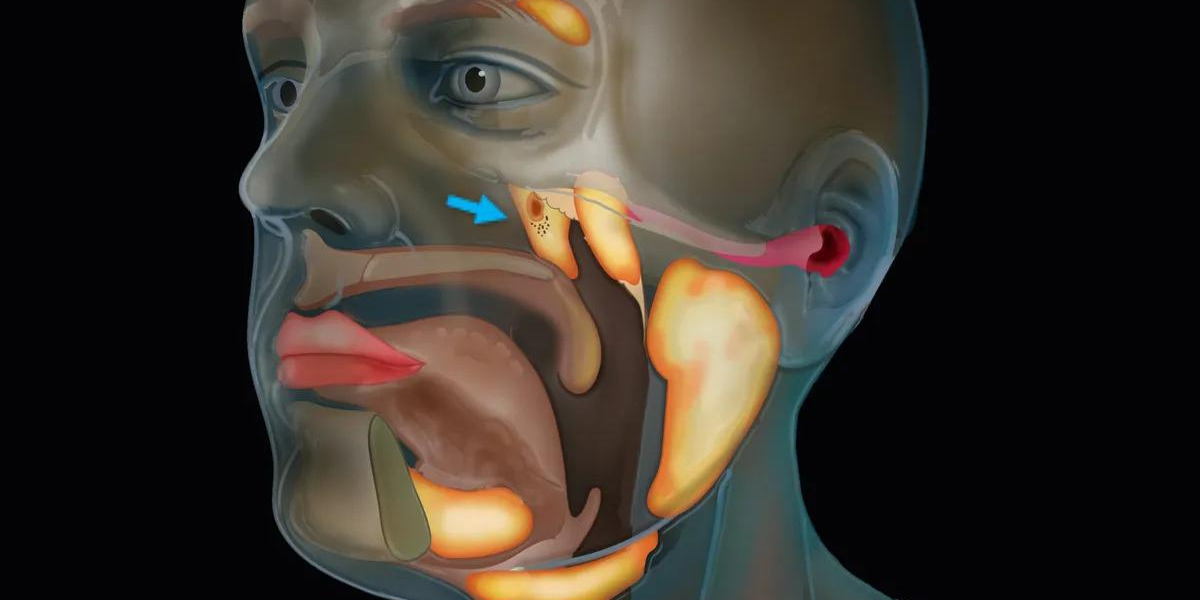Scientists may have accidentally discovered a new organ.
Altogether, it has always been presumed that we have 78 organs in our body – all with equal importance to how our body functions.
But everything we know may have changed thanks to scientists in the Netherlands.
Related Article: Warrior Buried 900 Years Ago May Have Been Non-Binary
Related Article: Scientists Discover Missing Continent After 375 Years
In a study published in the journal ‘Radiotherapy and Oncology’, a team of researchers – including those from the Netherlands Cancer Institute (NCI) – found something interesting when carrying out a study on prostate cancer.
They discovered a newly found set of salivary glands in the nasopharynx region – which is behind the nose – that are likely being used for moistening and lubricating the upper parts of the throat.
Due to their location over a piece of cartilage called the torus tubarius, this led the researchers to name this new organ the tubarial salivary glands.
To make sure this wasn’t a fluke or an anomaly, they examined at least 100 patients to confirm their findings and discovered that all of them had the newly discovered glands.
Salivary glands have an important role in our day-to-day life as they make saliva, which aids in digestion, keeps your mouth moist and supports healthy teeth, as per the Mayo Clinic.

Dr Wouter Vogel and Dr Matthijs Valstar were the two researchers who discovered the new organ so as you can imagine, they were very surprised to have found this out.
In a statement shared by Medical Express, Dr Vogel said: “People have three sets of large salivary glands, but not there.
“As far as we knew, the only salivary or mucous glands in the nasopharynx are microscopically small, and up to 1000 are evenly spread out throughout the mucosa. So, imagine our surprise when we found these.”
In a separate interview with The New York Times, Dr Vogel explained that while it is not clear how these glands haven’t been discovered in the past, he suggested that ‘the location is not very accessible, and you need very sensitive imaging to detect it’.
The original study that the two researchers were conducting was to test a new piece of technology for prostate cancer called PSMA (Prostate-specific membrane antigen) PET-CT 0 a combination of CT scans and positron emission tomography (PET) scans.
Related Article: People Don’t Actually Know What They Look Like, According To Science
Related Article: Scientists Say They’ve Finally Discovered What Came First The Chicken Or The Egg
For this, it involves the doctors injecting a radioactive tracer into the patient that binds well to the protein PSMA – an enzyme which is elevated in prostate cancer cells.
The researchers theorised that a combination of scans would also be good for detecting salivary gland tissues, which are also high in PSMA.
Dr Valstar adds: “The two new areas that lit up turned out to have other characteristics of salivary glands, as well.
“We call them tubarial glands, referring to their anatomical location.”
The researchers believe that this new discovery may also explain why people who undergo radiation cancer treatment for the head or neck usually end up with dry mouth and swallowing problems, as doctors were unaware of these glands, as per The New York Times.
However, Dr Alvand Hassankhani, a radiologist at the University of Pennsylvania, has warned to not get too carried away with this discovery and labelling them as ‘new organs’ and told the publisher that there ‘1000 minor salivary glands’ that can be found across the throat and mouth.
The reason why these are yet to be discovered is purely because they are tougher to locate through imaging – adding that Vogel and Valstar ‘just happened upon a better way to image a set of underappreciated minor glands’.
Do you have a story for us? If so, email us at [email protected]. All contact will be treated in confidence.






